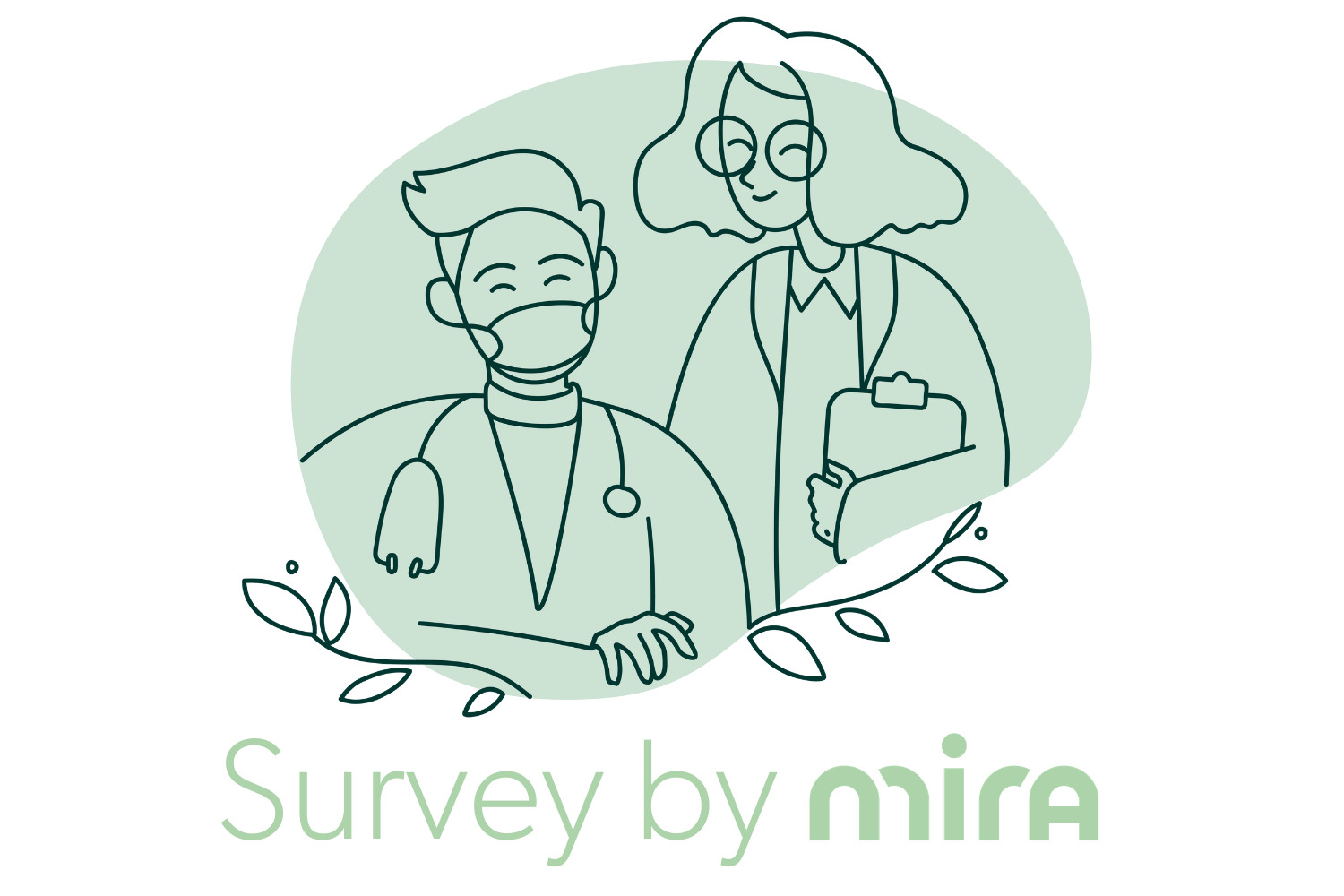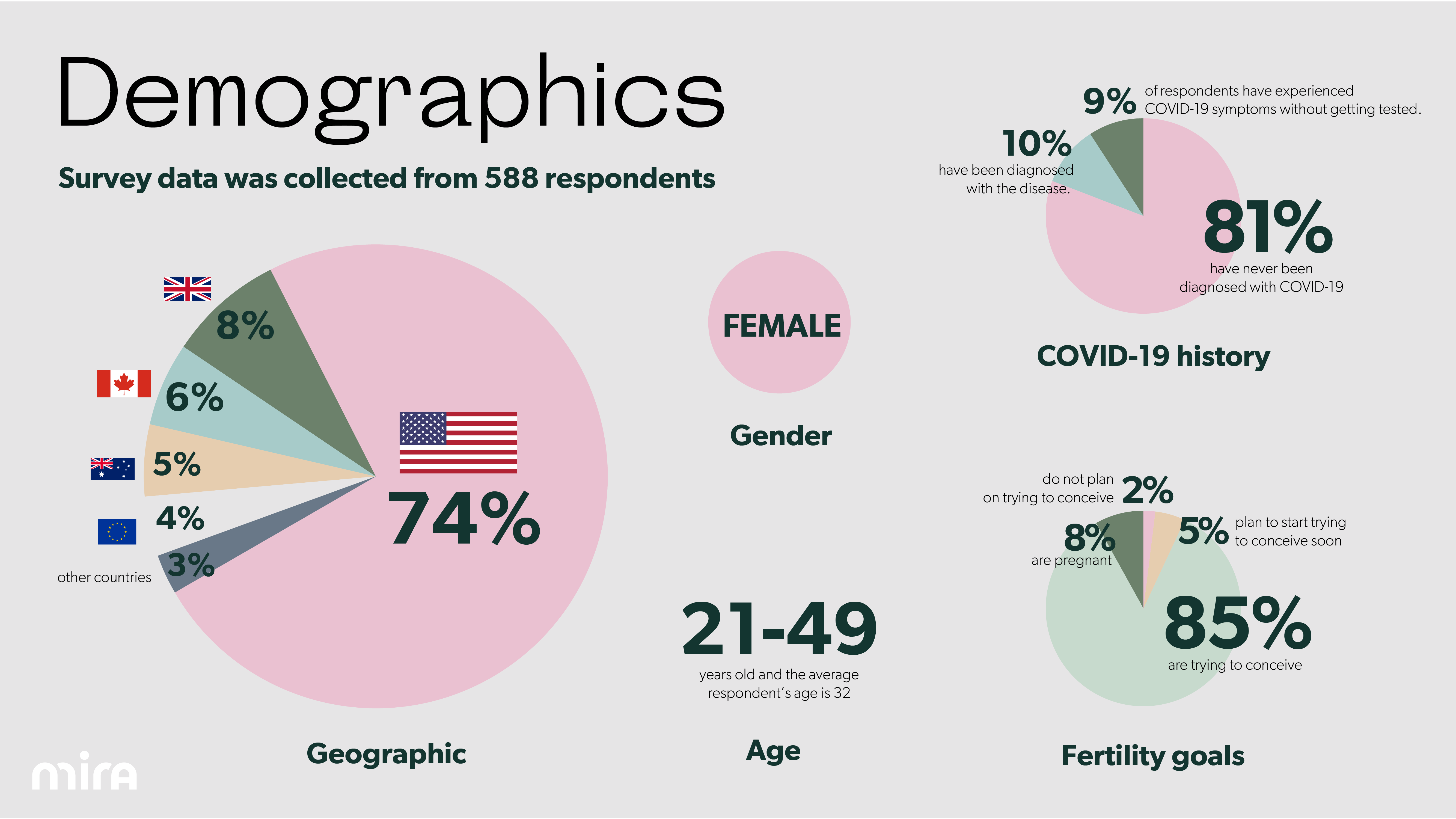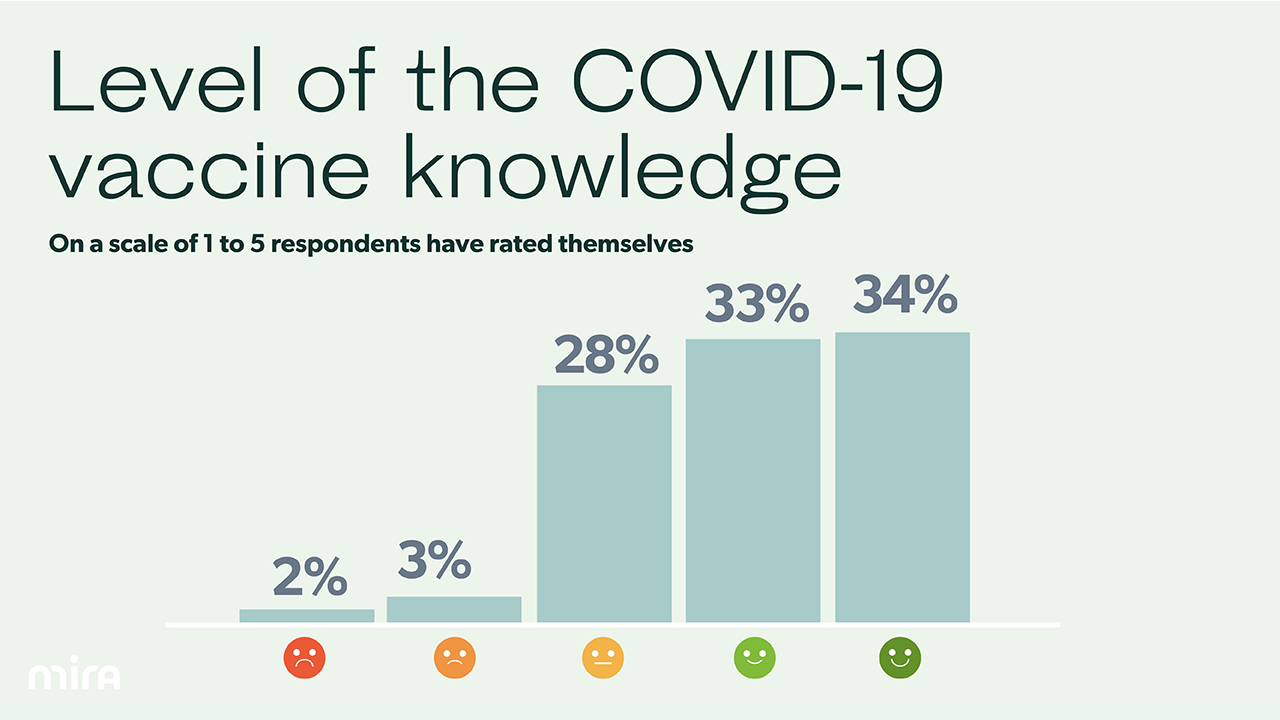68% of Women Trying to Conceive Suspect the COVID-19 Vaccine Causes Fertility Issues, survey finds
Mira conducted a survey that revealed women’s hesitancy toward the COVID-19 vaccine. The study of 500+ Mira’s customers who’re currently pregnant or trying to conceive finds the majority of respondents displayed negative attitudes towards the COVID-19 vaccine and its effect on fertility.

To date, the Centers for Disease Control and Prevention (CDC) has outlined that if you are trying to become pregnant or want to get pregnant in the future, you may receive a COVID-19 vaccine when one is available to you. In other words, there is currently no evidence that any vaccines, including COVID-19 vaccines, cause fertility problems. However, fear of uncertainty and lack of information drives hesitancy among pregnant women and trying to conceive alike.
Demographics of the survey
To dive deeper into this, Mira has surveyed 588 women aged 21 to 49 years old from different parts of the world, including the US (74%), the UK (8%), Canada (6%), Australia (5%), and European Union (4%). Remaining 3% of participants were from different countries in Africa, Asia, and Central America. A majority have never been diagnosed with COVID-19: only 10% have ever been diagnosed with the disease. Relatedly, 9% respondents have experienced COVID-19 symptoms without getting tested. In terms of fertility goals, 85% of the respondents are currently trying to conceive, and 8% are currently already pregnant.

A significant percentage of the respondents track ovulation and hormonal changes at home in spite of the challenges and obstacles posed by the pandemic. This is a popular trend that is mirrored among populations internationally. With fertility treatments delayed, at-home fertility monitors such as Mira have noticed a 31% increase in ovulation testing during this outbreak.
The study finds that, in general, respondents are confident in their vaccine knowledge: 34% of them gave themselves the highest score of COVID-19 vaccine awareness on a scale of 1 to 5. Only 2% and 3% admitted to a lack of knowledge, rating themselves 1 and 2, respectively.

Even though participants rated themselves high on vaccine knowledge, and 38% have already got the COVID-19 vaccine, the rest 62% of respondents have not taken the vaccine yet. Among the reasons for not getting the COVID-19 vaccine respondents named lack of data around the vaccine’s long-term impact on people’s health, the amount of health issues it’s already caused and short-term side effects like fever or period irregularity.
COVID-19 vaccine perception
This vaccine hesitancy and low level of acceptance for the vaccine among participants can be attributed to the negative attitudes towards COVID-19 vaccine with regards to fertility, that the survey was revealed.
When asked about their thoughts about the COVID-19 vaccine and fertility, 32% of respondents displayed the just-do-it mentality with positive attitudes and thoughts. Of the 32%, many of them believe that the vaccine is safe and expressed that the benefits of it would outweigh the risks.
On the other end of the spectrum, the remaining 68% respondents displayed negative attitudes and suspicions towards the COVID-19 vaccine and its effect on fertility. Interestingly, the negative attitudes towards COVID-19 vaccine with regards to fertility extends even to respondents who have already been vaccinated.
Reasons for COVID-19 vaccine hesitancy
The speed at which vaccines were developed was also a cause of concern to the respondents. A majority of them felt that the lack of data, research, and testing regarding the long-term effects of the vaccine on fertility is concerning. In other words, until long-term safety tests are complete, they will not be convinced that the vaccine is safe for them, with no effects on fertility.
Respondents also expressed that they were worried that the vaccine would cause side effects such as period irregularities, allergic reactions, inflammation, ovulation disturbances, and other adverse health effects that may pose as a challenge to one’s trying to conceive journey.
Furthermore, respondents who have additional concerns and conditions such as polycystic ovary syndrome (PCOS) or those who are currently undergoing fertility treatments lament at the lack of information regarding the vaccine’s effects on people who are faced with these special circumstances.

In an era where people are increasingly inclined to consult their friends on social media for advice on pretty much everything, it is a surprise that 58% of the respondents expressed a desire to consult with a fertility doctor, an obstetrician-gynecologist, or other professionals for advice before deciding on whether or not to get vaccinated.
However, it is worth noting that when asked if they actually consulted a fertility doctor, an obstetrician-gynecologist, or other professionals for advice before deciding on whether or not to get vaccinated, only 20% said yes.
Mira’s Editorial Process
All content produced by Mira meets stringent editorial standards, ensuring excellence and accuracy in language and medical precision. Every piece undergoes thorough fact-checking and review by qualified professionals. Check out our full editorial process to learn more.




